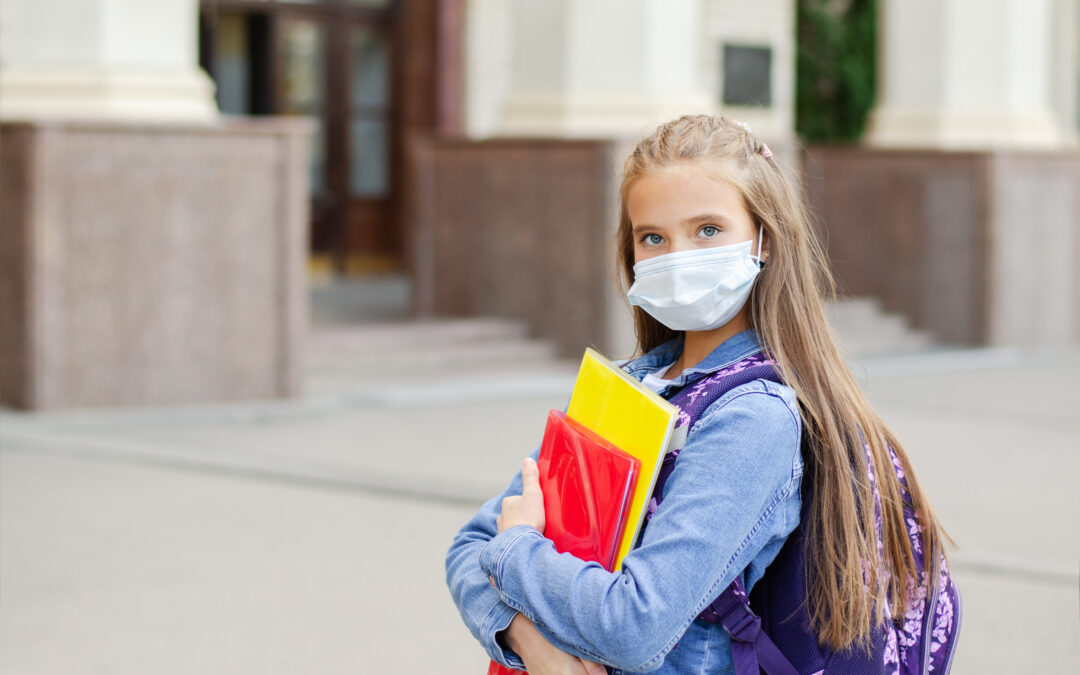This content has been archived. It may no longer be relevant
Will Our Kids Struggle to Socialize After Covid-19?
Our children have gone through an entire school year-plus since our lockdown last March. This has sure changed the way kids and teenagers have grown up. They have spent more time at home with only close family, minimal time hanging out with friends and haven’t been in crowded areas in a long time.
Many parents started to wonder how this will impact their kids’ socialization skills as we emerge from the pandemic. Young children have been home with parents or other close family members during the Covid-19 pandemic, which means many have been taking a break from daycare or school. As for teens, Covid-19 made the teenage years, which can be difficult to begin with, only harder. Many teens have missed out on some of the biggest or most monumental moments of their young lives: prom, sporting events, senior-year activities, college transitions and so much more.
Throughout the pandemic, parents have worried about what all of this lack of socialization could be doing to kids’ development. As vaccine rollouts continue, it’s time to think about reaclimating kids to the wide world of in-person togetherness.
The senior director of mental health services at South Shore Guidance Center and EPIC Long Island, doesn’t anticipate much of an anxiety spike in kids with the return to post-pandemic normalcy. “Kids obviously missed each other for a variety of reasons during this pandemic. I don’t see, depending on the age, much of an issue” the senior director says. “For preteens and teens, there’s not going to be much of a problem because they’ve really missed their friends. Their friends are an outlet for them emotionally. Friends are the main support for that age group,” the senior director says. “So I don’t foresee much anxiety around that. Other than maybe a little bit of, “will they still be my friend,” but for the most part it’s going to be a very smooth transition. Kids are going to be very happy about it because this has been very hard on them.”
Different age groups might have different times acclimating. “If you’re talking about really little ones who haven’t gotten the hang of socializing yet, they may have regressed a little bit and need some support from their parents or whoever adult is watching them help them get back into socializing,” the senior director says.
Different circumstances result in different anxiety levels. “I think it may be hard for the kids who have been bullied,” the senior director says. “This break has been a reprieve for them. They’ve been home and not in that situation. I think those are the kids it’s going to be a struggle for.”
Technology has certainly helped kids maintain connections. “With social media and technology and being able to FaceTime, it’s easier. If it was years ago before technology became more advanced I would say kids wouldn’t understand why they couldn’t see each other,” the senior director says. “For lower-income or socioeconomic communities that may not have as much technology, they may struggle a little more.”
“They crave being with each other and from the groups I’ve seen, they’re so happy to see each other in person,” the senior director adds.
A pediatric psychologist shares tips for parents to bear in mind during the transition from online socializing to back to the playground.
Temper Your Expectations
First and foremost, don’t expect everything to go perfectly. “It’s important to have realistic expectations and recognize upfront that this is going to be hard – and that’s OK,” the doctor says.
As kids start socializing beyond their families, some unsureness is to be expected. After all, it’s been a while since kids, like the rest of us, had to interact with other people, and some of their people skills may be rusty.
“Kids haven’t had to share with others, and they haven’t had to talk to unfamiliar adults,” the doctor says, “so you may see some shyness or kids responding to other people in ways that aren’t typical of how they act around their families.”
While not all children will experience difficulty transitioning back to in-person gatherings, some may. And those experiences may vary greatly from child to child.
Watch for Signs of Stress and Distress
Keep an eye out for any changes in your kids’ behavior and mood, including mood swings and sleeplessness – but perhaps just as importantly, try not to jump to conclusions about what they mean.
“As parents watch for changes in behaviors, we also have to be careful how we interpret them,” the doctor says. “It’s a good rule of thumb for anybody: Never assumer we know what’s going on,” the doctor says.
Other Ways to Support Your Kids as They Begin Socializing Again
To try to get to the bottom of how your kids are feeling, open the lines of communication – and start now, before they head back to the classroom.
Always Check In
It’s important to make an effort to be available to your kids. Make sure you give them opportunities to be open and honest with you about how their feeling. This will help you learn more about their day-to-day lives and if you need to be concerned about anything and seek help.
Acknowledge Their Feelings
As a parent, make sure you acknowledge your teen’s feelings and let them know, their feelings of disappointment or anxiety are normal and expected. But, if you notice these feelings are impacting relationships or school performance, it might be time to seek out additional resources and provide them with someone else to talk with about their feelings and situations.
Encourage Activities
It’s summer! School’s out! Encourage your kids to go outside, enjoy some sunshine and stay active. All these things can help them re-enter their lives.


